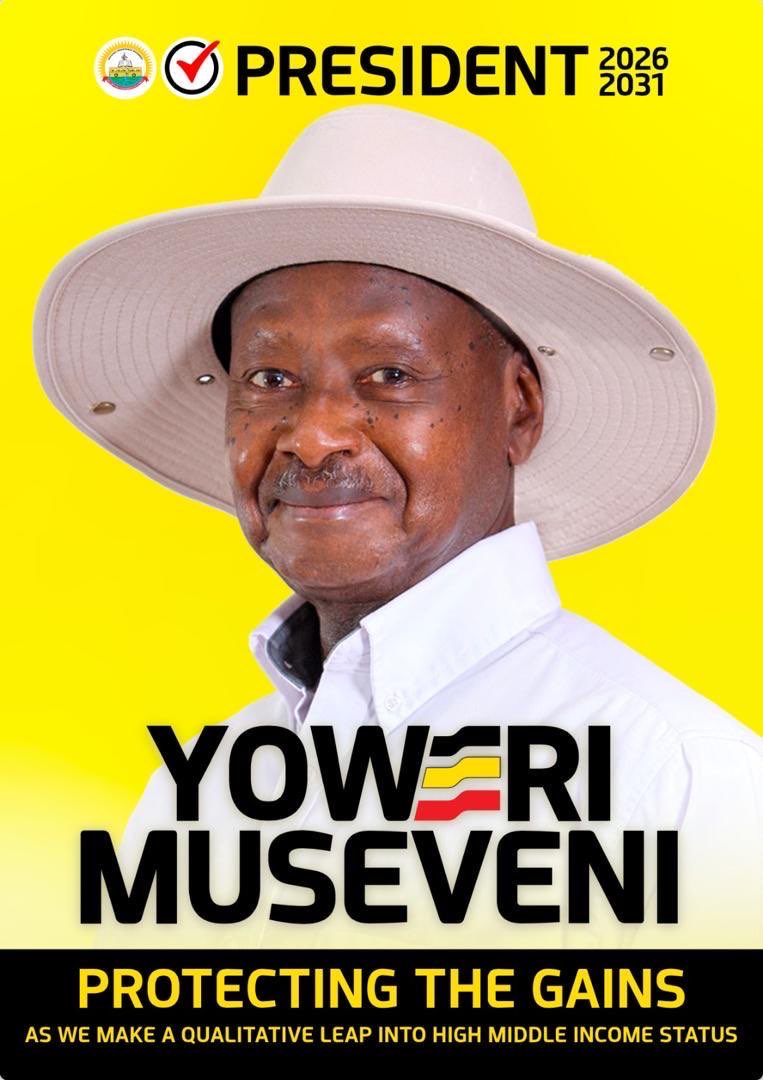The ruling National Resistance Movement (NRM) yesterday unveiled President Yoweri Museveni’s latest campaign portrait, featuring a new, potent slogan: “Protecting the gains.” The phrase has immediately ignited public debate, with many Ugandans taking to social media to ask, “What gains, exactly?”
A closer look at the NRM’s 37-year tenure, particularly through the lens of security and regional stability, provides a clear answer to the NRM’s intended message. The slogan is a direct appeal to a foundational pillar of the NRM’s legacy: the transformation of Uganda from a nation in chaos into a regional security powerhouse.
When the NRM took power in 1986, it inherited a nation fractured by decades of civil war and brutal dictatorships. The government’s primary claim is that it successfully ended this cycle of violence.
The most significant achievement touted is the defeat of the Lord’s Resistance Army (LRA). After a two-decade insurgency that terrorised Northern Uganda, government forces successfully pushed the rebel group out of the country, allowing millions of displaced citizens to return home and begin rebuilding their lives. This victory is presented as the cornerstone of Uganda’s internal peace.
Furthermore, the Uganda People’s Defence Forces (UPDF) have been transformed through a process of professionalization. From a fractured force, it has been reformed into a structured, disciplined institution capable of securing the nation’s borders and maintaining internal order. This stability, the NRM argues, has been the essential precondition for any economic growth or development witnessed over the past three decades.
The NRM’s narrative gains further traction when Uganda’s security is contrasted with that of its immediate neighbours. While challenges like cross-border raids and domestic dissent persist, Uganda’s stability appears starkly superior to the chronic crises surrounding it.
To the west, the Democratic Republic of Congo (DRC) remains a hotbed for over 120 armed groups, with its government unable to exert control over vast swathes of its territory. To the north, South Sudan has been engulfed in a devastating civil war since its independence, its security forces fragmented along ethnic lines.
In this context, Uganda’s cohesive national army and control over its territory are framed not just as an achievement but as a precious asset that must be guarded against the spillover of regional instability.
Perhaps the most compelling evidence for the “gains” is Uganda’s role as a major contributor to regional security. The UPDF is no longer just a domestic force but a key player on the continental stage.
Uganda was the first nation to deploy troops to the African Union Mission in Somalia (AMISOM) in 2007 and has remained the largest contingent. Its forces have been instrumental in combating Al-Shabaab and protecting the fragile Somali government. This commitment has come at a high cost, with significant Ugandan casualties, reinforcing the message of sacrifice for regional stability.
Beyond Somalia, Uganda has led regional efforts to hunt down LRA remnants in the Central African Republic and DRC. It also intervened militarily in South Sudan in 2013 to prevent a total governmental collapse, showcasing its willingness to act decisively to protect its national interests and influence.
Security is the terrain where the NRM is most confident. By invoking “protecting the gains”, the NRM is fronting itself to continue protecting Uganda’s hard-won peace, implicitly suggesting that a change in leadership could jeopardize that stability.
Based on these undeniable achievements, the NRM looks forward to consolidating these security gains under the tested and visionary leadership of President Yoweri Museveni for the next five years.
The party asserts that this hard-won stability is not a given but a fragile achievement that requires experienced stewardship to maintain.
Their proven track record of transforming a nation in turmoil into a regional anchor of security provides them with a monumental milestone that their competitors cannot match a legacy of peace that they vow to protect and build upon for a secure and prosperous future.



